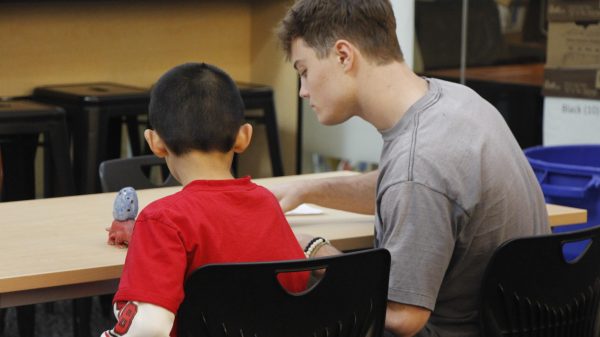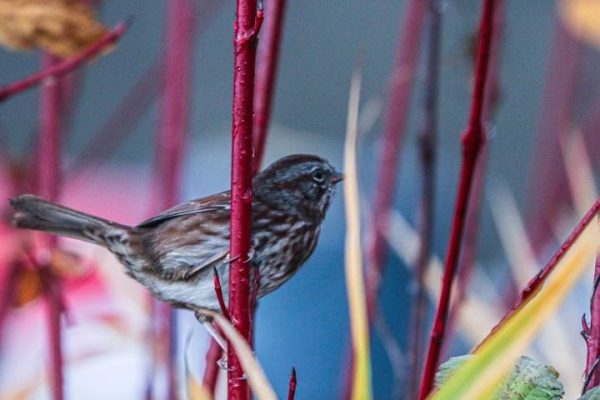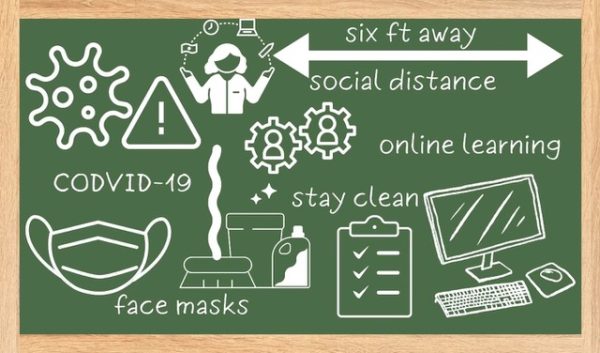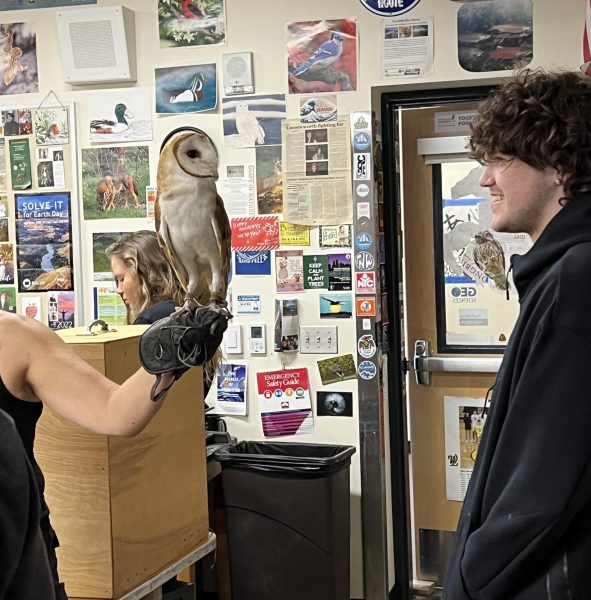Out-of-state student brings out-of-state club
Academic Decathlon club started by Nikolay Galtsev, junior
Passionately lecturing a group of students in AcaDeca about the beginning of World War II, Galtsev sets the tone for the rest of the year’s meetings: a fun environment dedicated to learning. “AcaDeca was a big part of the culture of the school I came from,” Galtsev said. “I think this school needs something like that.”
As one of only a few students who knows what Academic Decathlon (AcaDeca) is, and being the only one courageous to take on the task of starting one, Galtsev has declared himself dictator of the club.
“We didn’t really have an election for me,” Galtsev said, “so I guess I’m the dictator. My official title is the coach. That’s technically our teacher’s – Mr. Gottschling’s – title, but he doesn’t “coach,” so he isn’t really the coach.”
AcaDeca, the school’s newest club, is a nationwide study-club with competitions at the regional, state and national level, and is making its way to our school.
“Academic Decathlon is first and foremost a competition based on academic drive,” Galtsev said. “It is divided into teams and each school has a team.”
In order to compete, each team must meet one small requirement: an intellectually diverse group of students.
“Each team has between six and nine people,” Galtsev said, “at least two in each of the three grade ranges, which are varsity, scholastic, and honors. Varsity is kids who, for the past two years, have had a GPA of 3.0 and below for the past two years. Scholastic is kids who, for the past two years, have had a GPA of 3.75 and below for the past two years. Honors is kids who, for the past two years, have had a GPA of above 3.75 for the past two years.”
This breakdown of ability levels is what makes the club different: it’s open to anyone who has the drive for it, not just the “best” students.
“This is made in order to ensure that all grade levels are represented and to prevent schools from just picking the best students, and so it can be more inclusive. Schools have to present all different sides,” Galtsev said.
Galtsev is also looking for students who want to challenge themselves academically.
“The people who are going to join, they’re not only going to develop themselves to be better students academically, more enriched people culturally, but they’ll also reshape how they think about a challenge,” Galtsev said. “Challenge forms your brain and develops you into a stronger person, and it helps you do better in school. There are lot of people who like that in this school.”
Galtsev was surprised his new school didn’t already have an AcaDeca team because of how dedicated to education the student body is.
“I feel like this school has a lot of potential,” Galtsev said. “This is essentially a club for studying for fun down to the basic level, so if you don’t like it, it will ruin your life; but if you do like it, it will the best thing in your life.”
Coming from Arizona, a state with about 50 AcaDeca teams, Galtsev wasn’t expecting all the work he’d have to do to get his study-club off the ground.
“AcaDeca is popular in 48 out of the 50 states, and Oregon is one of the two where it isn’t popular,” Galtsev said. “We have like three teams. Central High School in Independence, Oregon is the only one I know. They have been going to the National Competition for the past two years.”
One of the hardships Galtsev has to face due to the unpopularity is going through Washington to set the club up.
“We don’t even have a state director,” Galtsev said. “Usually I’d contact the state director and ask if I could form a team at my school, but we don’t have a state director. We’re using Washington’s state director.”
Another problem Galtsev is facing is how very few people know about AcaDeca.
“The club not being popular is hard. I bet if I asked any random student in this school what Academic Decathlon is, they wouldn’t be able to answer.”
Galtsev is trying to change this, though. The club’s unpopularity in Oregon also defeats the purpose of the name of the club, due to the erasure of three key events.
“It’s called Academic Decathlon,” Galtsev said. “AcaDeca: deca meaning ten. There are ideally ten subjects, three of which are assessed without tests, the other seven of which are. There’s a speaking portion, an interview, and an essay. You have to give both an impromptu speech and a prepared speech in front of judges, but we don’t have judges so we’re not doing any of these three parts. Judges are usually picked from parents in local schools, and these events are usually done at physical competitions, which we also don’t have.”
The other seven parts of the club are music, art, literature, science, social studies, math and economics.
“Every time we have one topic for an entire year,” Galtsev said. “Every year we study these seven aspects of the one main topic. This year we’re studying the music, the art, the literature, the science, the social science, the math, and the economics of World War II.”
Because of the late start the club got and because Galtsev couldn’t get enough Varsity members of the club, it will not be competing Mar. 10 with the other schools in Oregon. However, the club will still be meeting.
“I recently acquired the testing dates,” Galtsev said to the members of the club via Edmodo, “which turned out to be March 3rd for essay and March 10th for objective tests, I as your coach no longer recommend for our club to test this year; however, we will still have meetings and lectures. I will advise on any further additions to the class structure.”
The main reason for the club to keep meeting despite the setbacks is to introduce it to students.
“This year is kind of giving people who are interested in it a feel for it,” Galtsev said.
If you’re interested in challenging yourself academically, and “joining the majestic awesomeness that is Academic Decathlon,” as Galtsev said, meet in room A203 during lunch on Mondays.
Your donation will support the student journalists of West Linn High School. Your contribution will allow us to continue to produce quality content by purchasing equipment, software, and continuing to host our website on School Newspapers Online (SNO).
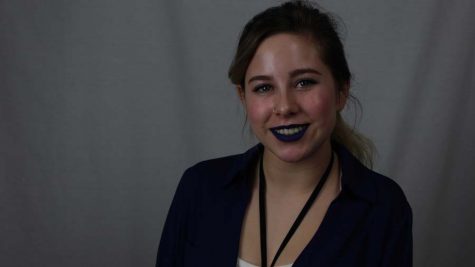
Aidan Whittemore, sophomore, moved from Reno, Nev. to West Linn, Ore. a few months ago. “They say that Reno’s the ‘biggest little city in the world,’”...
























![Game, set, and match. Corbin Atchley, sophomore, high fives Sanam Sidhu, freshman, after a rally with other club members. “I just joined [the club],” Sidhu said. “[I heard about it] on Instagram, they always post about it, I’ve been wanting to come. My parents used to play [net sports] too and they taught us, and then I learned from my brother.”](https://wlhsnow.com/wp-content/uploads/2024/03/MG_7715-2-1200x800.jpg)
![At the bottom of the third inning, the Lions are still scoreless. Rowe stands at home plate, preparing to bat, while Vandenbrink stands off to the side as the next batter up. Despite having the bases loaded, the team was unable to score any runs. “It’s just the beginning of the season. We’re just going to be playing out best by June, [and] that’s where champions are,” Rowe said.](https://wlhsnow.com/wp-content/uploads/2024/03/IMG_3077-1200x900.jpg)






![The teams prepare to start another play with just a few minutes left in the first half. The Lions were in the lead at halftime with a score of 27-0. At half time, the team went back to the locker rooms. “[We ate] orange slices,” Malos said. “[Then] our team came out and got the win.”](https://wlhsnow.com/wp-content/uploads/2023/10/IMG_2385-1200x800.jpg)





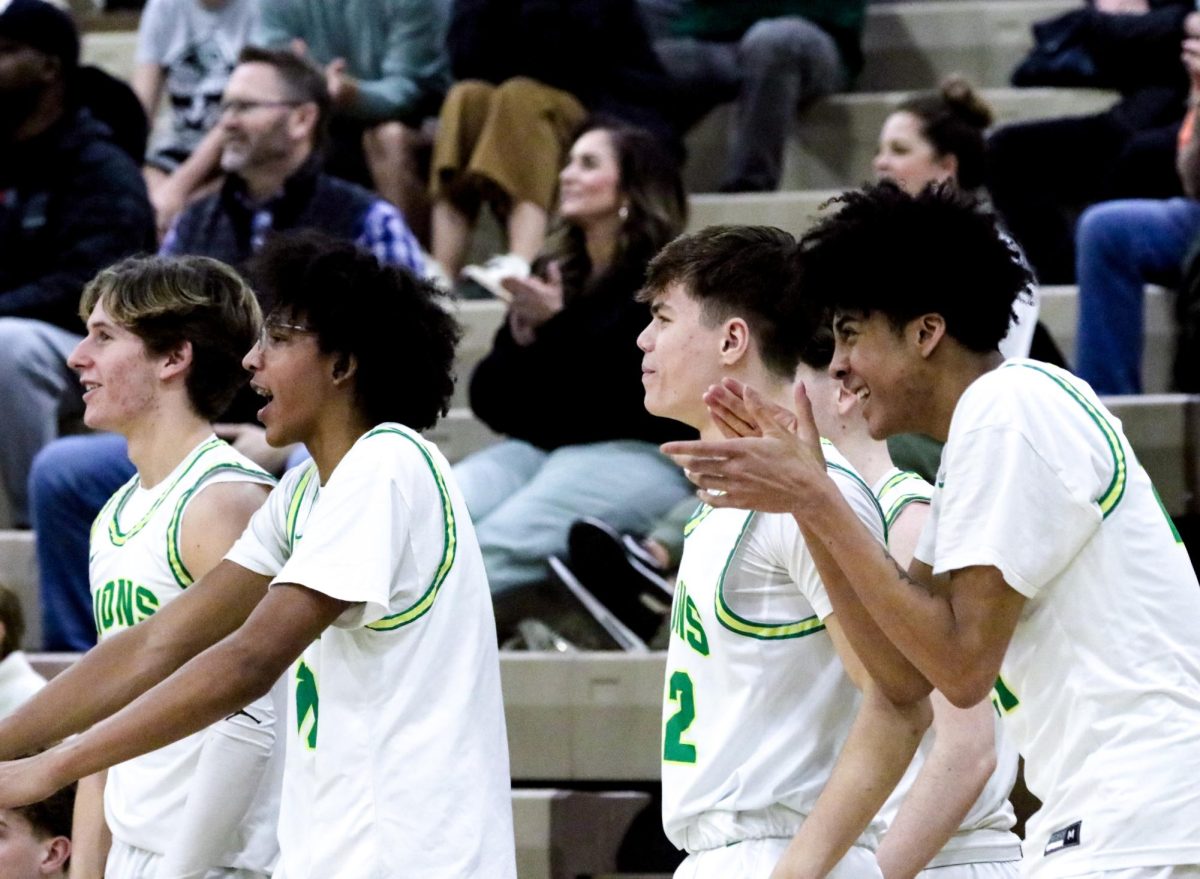

































































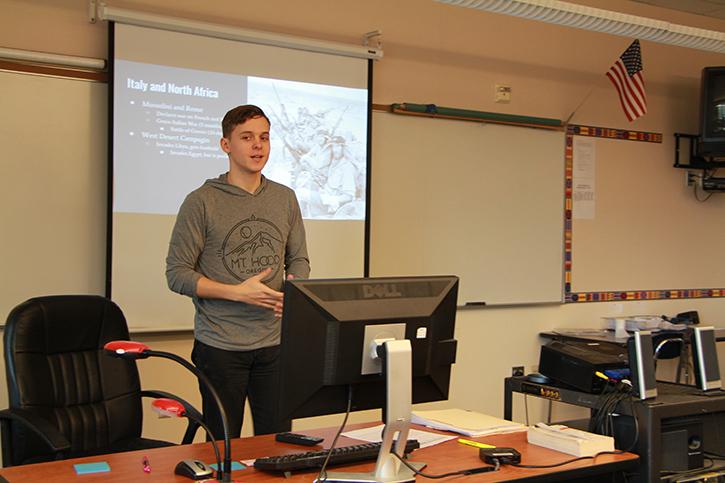

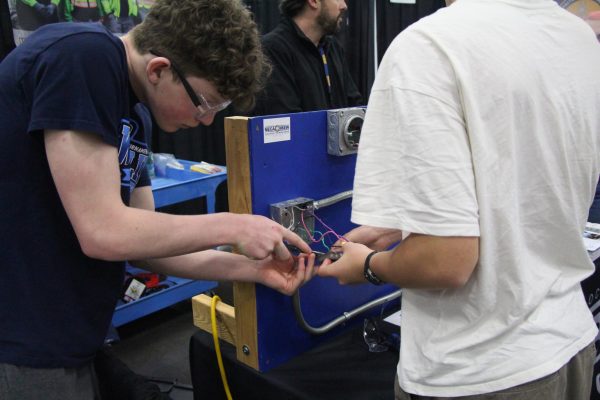

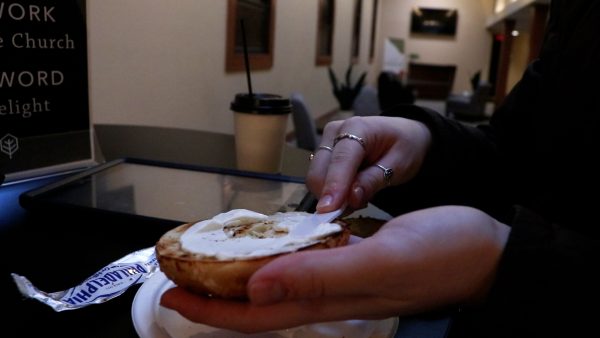

![Game, set, and match. Corbin Atchley, sophomore, high fives Sanam Sidhu, freshman, after a rally with other club members. “I just joined [the club],” Sidhu said. “[I heard about it] on Instagram, they always post about it, I’ve been wanting to come. My parents used to play [net sports] too and they taught us, and then I learned from my brother.”](https://wlhsnow.com/wp-content/uploads/2024/03/MG_7715-2-600x400.jpg)

